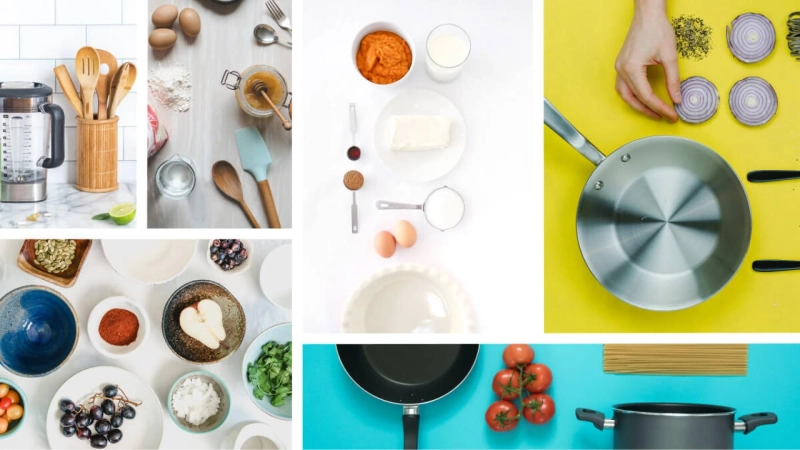A well-equipped kitchen is the foundation of great cooking, and the right kitchen utensils play a crucial role in turning ingredients into delicious meals. Whether you're a beginner just setting up your kitchen or a seasoned chef looking to upgrade, knowing how to choose the right tools is essential. The perfect set of kitchen utensils can save you time, improve efficiency, and elevate your overall cooking experience.
In this guide, we’ll explore how to pick the best kitchen utensils for your needs, covering everything from material and functionality to maintenance and must-haves.
1. Understand Your Cooking Style
Before you buy anything, think about the kind of food you usually prepare. Do you enjoy baking, stir-frying, or grilling? Your cooking habits should influence your choice of kitchen utensils. For example, if you love baking, a good set of measuring spoons, whisks, and silicone spatulas are essential. If stir-frying is more your style, opt for heat-resistant tongs and a sturdy wok turner.
Tailoring your utensil collection to your cooking style ensures you don’t waste money on items you’ll rarely use.
2. Focus on Quality Over Quantity
While it might be tempting to buy a large, budget-friendly set, it's smarter to invest in a few high-quality kitchen utensils that will last. Look for utensils made from durable materials like stainless steel, silicone, or hardwood. These materials are not only sturdy but also resistant to rust, heat, and warping.
Quality utensils may cost more initially, but they often outperform and outlast cheaper alternatives, saving you money in the long run.
3. Choose the Right Materials
The material of your kitchen utensils matters, especially depending on the type of cookware you use:
- Stainless Steel: Great for durability and strength, ideal for frying and flipping. Avoid using with non-stick pans to prevent scratching.
- Silicone: Heat-resistant, non-stick friendly, and easy to clean. A perfect choice for mixing and stirring.
- Wood: Gentle on cookware and offers a rustic aesthetic. However, it requires careful cleaning and drying to avoid bacteria buildup.
- Plastic: Lightweight and inexpensive but may melt under high heat or wear out quickly.
Choosing the right materials ensures your utensils are compatible with your cookware and last longer.
4. Ergonomics and Comfort
Your kitchen utensils should feel comfortable in your hand, especially if you cook frequently. Look for handles with a good grip, balanced weight, and user-friendly design. Ergonomically designed utensils help reduce strain during cooking, making the process more enjoyable.
Also, opt for utensils that are dishwasher-safe if you prefer easy cleanup.
5. Must-Have Utensils for Every Kitchen
Whether you're just starting out or fine-tuning your collection, certain kitchen utensils are universally useful:
- Spatula (silicone or stainless steel)
- Slotted spoon
- Tongs
- Whisk
- Ladle
- Vegetable peeler
- Grater
- Measuring cups and spoons
- Can opener
- Chef’s knife (technically a tool, but essential)
Having these essentials ensures you're prepared for most cooking tasks, from sautéing and mixing to serving and baking.
6. Maintenance and Storage
To get the most from your kitchen utensils, take care of them properly. Wash them according to the manufacturer’s instructions, especially if they are made from wood or silicone. Store utensils neatly in a holder or drawer organizer to keep them clean and accessible.
Proper maintenance helps extend the life of your tools and keeps your kitchen organized and hygienic.
Conclusion
Choosing the right kitchen utensils doesn’t have to be overwhelming. By focusing on quality, functionality, and comfort, you can build a reliable collection that makes cooking easier and more enjoyable. Whether you're whipping up a quick breakfast or preparing a gourmet dinner, the right tools will help you achieve better results and enjoy the process.
So, take your time, consider your needs, and invest in kitchen utensils that suit your cooking style—you'll thank yourself every time you step into the kitchen.


